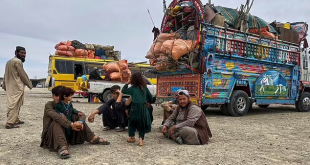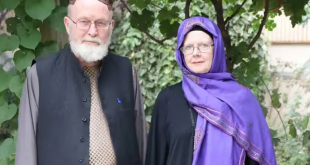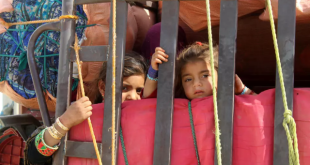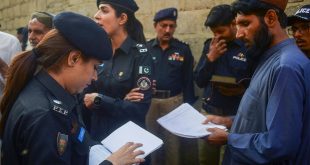Dr. Rangeen Dadfar Spanta was a policymaker and senior official of Afghanistan government after 2001. He served as President Hamid Karzai’s international relations advisor, foreign minister and national security advisor. He played a pivotal role in negotiating and crafting the U.S.–Afghanistan Strategic Partnership Agreement in 2005. Dr. Spanta, however, contends that Kabul-Washington partnership agreement was fruitless for Afghanistan. He holds an agnostic view about how an assertive American policy made Afghanistan a dependent and colonial state, arguing that the U.S.-Taliban peace deal on Feb 29 in Doha catapulted Taliban to a quasi-government, in which Afghanistan’s republic system was swept into nothingness. He believes Afghanistan would have to reinstate a neutral foreign policy and reach an agreement with the Taliban to secure an elected, pluralist political system.
Nawroz news agency has spoken with Dr. Rangeen Dadfar Spanta about peace efforts and other significant issues which is as follows:
Nawroz: Peace negotiations are set to begin between representatives of Afghanistan government and the Taliban. But, it is believed the latter declare themselves as victors of the war and yearn for a transition of power to their Amir-al Mominin, rather than peace. What is your viewpoint?
Spanta: In all peace talks, negotiating sides seek leverage and have a litany of demands. I suspect a political and psychological problem in it; with patronage from the U.S. and Pakistan and battlefields gains in recent years, Taliban will sit in the negotiating table from a position of strength and with maximum demands. And, deadened by polarization and discord among the political elite, Kabul government is particularly fragile. A maverick government negotiator still has monopolist and unilateralist beliefs. This will prevent the Kabul team from entering the negotiations from a united, republican-representing and lawful position, unable to safeguard gains of the past two decades. An alternative narrative against Taliban’s agendas has failed to be shaped due to political schism and foreign pressure.
Nawroz: You mentioned a schism in Afghanistan government. But, political bigwigs including Hamid Karzai, Mr. Sayyaf, President Ghani, Dr. Abdullah and Amrullah Saleh issued a joint declaration, speaking from one united front. Don’t you think that schism is no longer a problem?
Spanta: Yes, political bickering may have been resolved to some extent. A political settlement and a united elite is always a blessing in disguise, but schism and polarization still exists. I think “republic” in its abstract sense has been ill-defined by Kabul government. It is conceptual, rather than form. “Republic” has long been associated with democracy. You can’t defend ‘republic’ but don’t hold elections. In such a democracy, a citizen is law-abiding. But our narrative weakens our ‘republic’ position. Our narrative must stem from the people. If we cheat and lie, then quality of our republic government will be indistinguishable from that of the Taliban’s emirate.
Nawroz: You said the U.S. has acted as a colonialist force in Afghanistan. Isn’t American military presence in Afghanistan legitimate?
Spanta: Legally speaking, American presence is UN-approved. But the U.S. foreign policy proves that it views Afghanistan an inferior, colonial state. Elections have been engineered by foreign powers, so have how the governments are formed. Presidents have not been independent, so has the current president. The U.S. envoy Khalilzad’s decision about the release of Taliban prisoners is a case in point.
Nawroz: Some senior government officials believe that the peace that Taliban and American diplomats are seeking will probably slide Afghanistan into becoming Pakistan’s protectorate without a Constitution and an elected government. What do you think?
Spanta: I can’t rule that out. A peace that brings despotism, unilateralism and influence of a foreign power over our politics will not last long. Capitulating to Taliban ideology won’t herald peace; an end to war is quintessential. Silencing the guns is a sacred mission. But peace should culminate into a partnership government and an open political system.
Nawroz: You mentioned the U.S. supports the Taliban, notwithstanding exorbitant sums it has showered the Afghanistan government. Isn’t your analysis of the situation too exaggerative?
Spanta: That is possible. Some of my ex-colleagues from Hamid Karzai’s government believe it was all a machination, a hoax, and that America never wanted to tame or defeat the Taliban. But I am against that conspiracy theory. The reality is that the U.S. had opted for a compromise with the Taliban after its defeat. Zalmay Khalilzad is now the mouthpiece of the Taliban. After any terrorist attack, Khalilzad denies the Taliban did it, before any militant spokesperson. He made decisions about the Taliban prisoner release at the expense of Afghanistan. I am not against that. But any decision regarding this must be made by Afghanistan’s institutions and its president. Peace has a price and prisoners must be released. We can’t hold them forever. But the Taliban should have talked directly to Kabul about this.
Nawroz: You were one of the champions of the U.S.-Afghanistan defense and security strategic partnership. The U.S.-Afghanistan Strategic Partnership Agreement was signed after your diligent work. You were enamored of the U.S. then about which you wrote in your memoir. Did you ever imagine then that the U.S. would, to Kabul’s chagrin, befriend the Taliban?
Spanta: I was delusional. We had hoped the U.S. and other western democracies would help us democratize Afghanistan and strengthen government institutions. I don’t negate social democracy. I believe in social justice and that the U.S. and its allies have been very expansionist in third-world countries. We have to now end this illusion and make amends for our mistakes. We have to create a balanced security and foreign policy to safeguard us from wars among China, America, Russia and other superpowers.
Nawroz: TheTaliban, as you said, will have maximum demands in the negotiating table. They could never agree on peace and push for a total infestation of Afghanistan and then American leave. How serious is this scenario?
Spanta: Americans will have to leave ultimately. The upshot of American invasion of Afghanistan was nothing more than a mere unilateral decision by its envoy Khalilzad in Doha to negotiate with the Taliban a huge matter and condescend Afghanistan doing it. We can’t rule out a reversal to 1989. But it is impossible that an ideological group with the use of force can establish a regime in Afghanistan. This is not the ultimate culmination of the war. The solution is a fair and lasting peace. Afghans will resist if the Taliban seek to re-establish their despotic regime. The overwhelming majority of Afghans crave for peace.
Nawroz: All American forces, intelligence and contract forces, will have to depart Afghanistan based on the Taliban-U.S. peace deal. Would that happen?
Spanta: Americans had made a similar proclamation in Iraq and apparently exited there. But they still have military presence there. They had planned a departure from Al-Zahran base in Saudi Arabia; they still have presence in that very same base. They still struggle to maintain a military presence in Afghanistan with a tighter spending. The nuclei of geopolitical rivalries has shifted from the Middle East to South Asia and East Asia. The U.S. tries to keep its presence here relative to colossal global strategies. American strategists think the U.S. has entered a new cold war with China and such an intense rivalry requires a certain strategic presence in some areas. We have to think about the repercussions of American military bases in Afghanistan in times of stress.
Nawroz: American security and political pundits believe a prospective American military presence, after reinstatement of peace in Afghanistan, will be to fight Daesh. You didn’t mention Daesh?
Spanta: The war against ISIS or Daesh is not serious in Afghanistan. The U.S. war against Daesh is a red herring as other foreign militia groups under auspices of foreign countries are being given a wide berth. It is all an intelligence project and its agitators use it to scare rivals and foes. Afghanistan’s Daesh group differs substantially from the Middle East’s ISIS group. Daesh could become a real danger in future and some fighters splintering from the Taliban may join Daesh.
Nawroz: It is believed that peace negotiations must end with the formation of a government with an appointed Amir al-Mominin and an elected president, a prime minister elected by the parliament and some powerful governors and provincial councils. What is your opinion?
Spanta: Foreign-imposed paradigms and government formations have not given fruit for us. In 2004, a government model was imposed that would make the president an absolute king for the reason of a centralized and limitless power it forecasted for president. Any other system will not work in view of current political and social structure. Law should be enforced so sternly to make it irrevocable. Afghanistan’s Constitution is drafted in such a way that enables a lawless president to revoke all laws easily; such is being experienced now. A future government will have to uphold a balanced distribution of power – a decentralized power. The age of emirs is over. We live in the era of national governments.
Nawroz: If peace is restored at last, what will be the fate of Mawlawi Haibatullah Akhondzada?
Spanta: I believe that it is the era of democracy and people’s freedom should be preserved through an elected government. In the age of state-nations, everything will be calibrated in the national government’s system. All government have citizens and every citizen will be law-abiding. Nobody can assume himself emir or others his peasants. We are not a caliphate empire’s vassal to need an Amir al-Mominin. The Afghan people will neither bow to a lawless or dictator president nor to an emir. Peace will be impossible if such plans are pursued.
Nawroz: What is your opinion about a post-peace transition government and how it should be formed without amending the Constitution?
Spanta: A transition period is inevitable. Its mechanism and health depends on agreement between warring parties. I can’t predict a scenario for Afghanistan’s transition. There is a consensus among political elite about amending the Constitution to fine-tune the transition period, but there is also a disagreement about modality of reforms and contents. I believe an aggressive and assertive presidential system should be revoked to facilitate participation of all groups. It was not a successful system of governance. In future negotiations about the Constitution and prospective government, it should be meticulously deliberated as how to prevent or minimize a dictator and bigot government. The Constitution should be amended and inconstancies discarded based on a mechanism acceptable to all.
Nawroz: You said the Constitution should be amended based on a mechanism acceptable to all. What would be President Ghani’s role in a transition period and constitutional amendments?
Spanta: He is the president of Afghanistan. We have to start empowering our mandate. Mr. Ghani is a renowned political of our country and will play his role. But, I can’t sketch a role for him, role which would be depending on agreement between the belligerent forces and political elite.
 Afghanistan Times
Afghanistan Times




